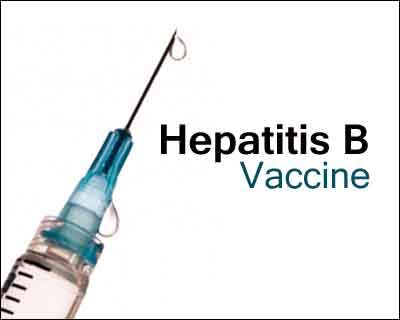- Home
- Medical news & Guidelines
- Anesthesiology
- Cardiology and CTVS
- Critical Care
- Dentistry
- Dermatology
- Diabetes and Endocrinology
- ENT
- Gastroenterology
- Medicine
- Nephrology
- Neurology
- Obstretics-Gynaecology
- Oncology
- Ophthalmology
- Orthopaedics
- Pediatrics-Neonatology
- Psychiatry
- Pulmonology
- Radiology
- Surgery
- Urology
- Laboratory Medicine
- Diet
- Nursing
- Paramedical
- Physiotherapy
- Health news
- Fact Check
- Bone Health Fact Check
- Brain Health Fact Check
- Cancer Related Fact Check
- Child Care Fact Check
- Dental and oral health fact check
- Diabetes and metabolic health fact check
- Diet and Nutrition Fact Check
- Eye and ENT Care Fact Check
- Fitness fact check
- Gut health fact check
- Heart health fact check
- Kidney health fact check
- Medical education fact check
- Men's health fact check
- Respiratory fact check
- Skin and hair care fact check
- Vaccine and Immunization fact check
- Women's health fact check
- AYUSH
- State News
- Andaman and Nicobar Islands
- Andhra Pradesh
- Arunachal Pradesh
- Assam
- Bihar
- Chandigarh
- Chattisgarh
- Dadra and Nagar Haveli
- Daman and Diu
- Delhi
- Goa
- Gujarat
- Haryana
- Himachal Pradesh
- Jammu & Kashmir
- Jharkhand
- Karnataka
- Kerala
- Ladakh
- Lakshadweep
- Madhya Pradesh
- Maharashtra
- Manipur
- Meghalaya
- Mizoram
- Nagaland
- Odisha
- Puducherry
- Punjab
- Rajasthan
- Sikkim
- Tamil Nadu
- Telangana
- Tripura
- Uttar Pradesh
- Uttrakhand
- West Bengal
- Medical Education
- Industry
All healthcare workers to get Immunised against Hepatitis-B: Health Ministry

New Delhi: The government has decided to vaccinate all healthcare workers, involved in conducting deliveries, giving injections and exposed to blood or blood products, for Hepatitis-B.
Hepatitis-B vaccination is recommended for all healthcare workers with occupational exposure, who have not received a complete primary series, Union Health Ministry said in a official statement today.
"On directions of Union Health Minister J P Nadda, the Health Ministry has taken a decision to vaccinate all healthcare workers who are at an increased risk of acquiring Hepatitis-B infection such as those involved in conducting deliveries, giving injections and exposed to blood or blood products," the statement said.
Reports from India indicate that only 16-60 percent of healthcare workers have received complete Hepatitis-B immunization. Paramedics have a higher risk of Hepatitis B Virus (HBV) transmission and receive HBV vaccination less often than doctors. Vaccination is effective in protecting 90-95 percent, the ministry said.
Hepatitis-B is a viral infection that attacks the liver and can cause both acute and chronic disease. The virus is highly contagious and is transmitted through contact with the blood or other body fluids of an infected person.
It is transmitted when blood, semen or another body fluid from a person infected with the Hepatitis B Virus (HBV), enters the body of someone who is not infected.
"HBV infection is a well-recognized occupational risk for health-care workers (including trainees), and others ( housekeeping staff, emergency workers) exposed to infected blood and body fluids or blood-contaminated environments.
"Because of their contact with patients or infective material, healthcare workers are at considerably greater risk of HBV infection than the general population," the statement said.
It pointed out that healthcare workers are often unaware of all exposures to potentially infectious blood and body fluids, or contaminated environments. Even when exposures are recognized, healthcare workers often do not seek post-exposure prophylactic management.
"Hepatitis B vaccination safeguards health workers when administered early, ideally before occupational exposure, and provides greater protection for patients from infection through exposure to contaminated environments or infected workers," the statement said.
The Health Ministry said that in 2015, the prevalence of Hepatitis-B Virus among general population in India ranges from 2 to 8 percent, which places the country in an intermediate HBV endemicity zone while with 50 million cases it is also the second largest global pool of chronic HBV infections.
However, the global prevalence of Hepatitis-B Virus (HBV) infection in the general population was estimated at 3.5 percent with about 257 million persons living with chronic HBV infection.
"It is a major global health problem and the most serious type of viral hepatitis. It is estimated that about 780,000 people die each year due to consequences of Hepatitis B, such as liver cirrhosis and liver cancer," the statement said.
The Ministry is already taking many initiatives to prevent Hepatitis-B which include the vaccine that is given at birth and as a part of routine immunization under the Universal Immunization Programme, and the use of auto-disposable syringes for vaccination to prevent spread through contaminated syringes and proper disposal of bio-medical waste.
About the dosage, the statement said,"The adult schedule to be followed for the dosage - that is - three doses of Hepatitis-B are to be given within a period of 1-6 months.
"The states and Union Territories will work out the logistics, including number of beneficiaries which requires the vaccination and the quantity of vaccines. The vaccination remains effective for a long period," the ministry added.
HBVHBV infectionshealth carehepatitis bHepatitis B VirusimmunizationimmunizeJ.P Naddaliver cancerliver cirrhosisministry of healthUniversal Immunization Programmevaccinate
Medical Dialogues Bureau consists of a team of passionate medical/scientific writers, led by doctors and healthcare researchers. Our team efforts to bring you updated and timely news about the important happenings of the medical and healthcare sector. Our editorial team can be reached at editorial@medicaldialogues.in.
Next Story


